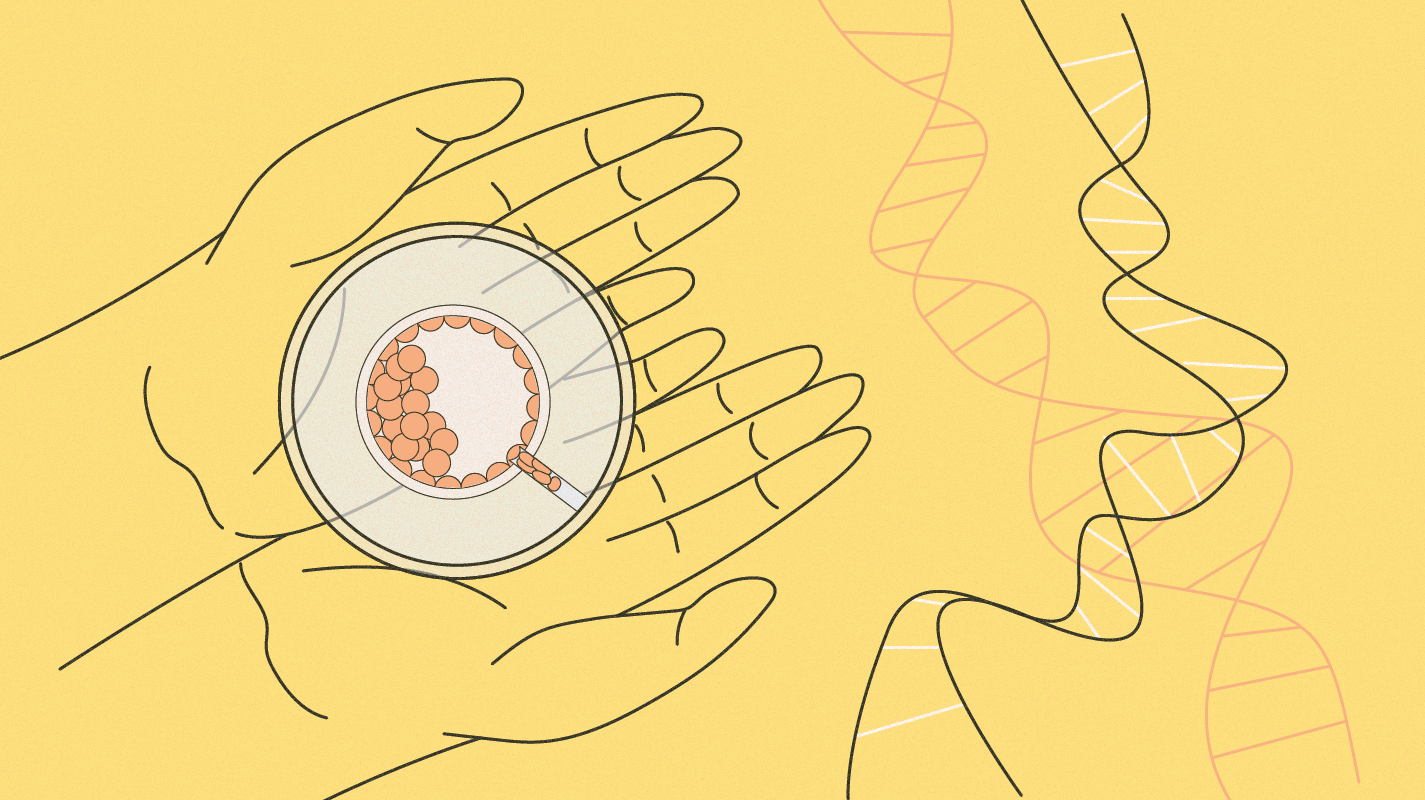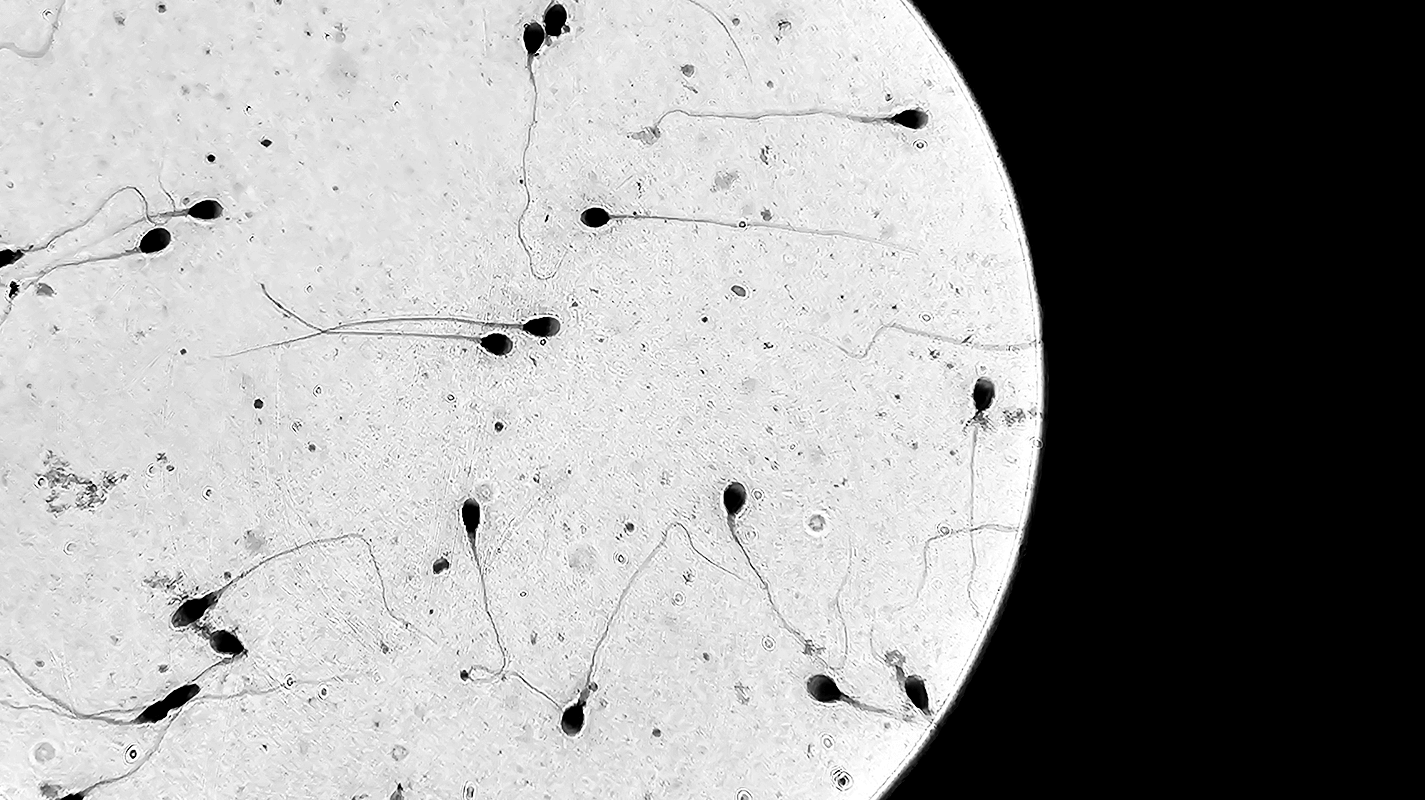Personalized fertility treatments: the importance of genetic diagnosis with PGT

At Fertilidad Integral, we know that every person, every couple, and every story is unique. That is why personalized fertility treatments are the safest path to increasing the chances of success. One of the most important tools in this process is preimplantation genetic testing (PGT), which allows us to deeply understand the health of embryos before transfer (ASRM, 2023).
Learn what it is, when it is recommended, and how it can make a difference in your journey toward motherhood or parenthood.
What is preimplantation genetic testing (PGT)?
PGT (also known as preimplantation genetic diagnosis or PGD) is a technique performed during an in vitro fertilization (IVF) cycle. It consists of analyzing embryos in the laboratory before transferring them into the uterus, in order to detect possible genetic or chromosomal alterations.
This test is a key tool in assisted reproduction treatments, as it helps select embryos with the highest probability of achieving a healthy pregnancy.
When is PGT recommended?
PGT is not indicated for every case, but for specific situations where it can make a significant difference:
- Women over 35 years old.
- Patients with recurrent miscarriages.
- People with a family history of genetic diseases.
- Couples with previous IVF failures.
- Cases where there is a risk of transmitting chromosomal alterations.
How does the procedure work?
PGT is performed as part of an IVF cycle:
1.- Ovarian stimulation and retrieval: several eggs are obtained.
2.- In vitro fertilization (ICSI or IVF): eggs are fertilized in the laboratory.
3.- Embryo culture: embryos are grown until day 5 or 6 (blastocyst stage).
4.- Embryo biopsy: a small sample of cells is extracted for genetic analysis.
5.- Laboratory study: chromosomes and possible alterations are evaluated.
6.- Embryo transfer: the healthiest embryo, with the best chance of achieving pregnancy, is selected.
It is a safe procedure, performed under international protocols and with the care of our specialized embryologists.
Main benefits of PGT
a) Increases the success rate of IVF.
b) Reduces the risk of miscarriage.
c) Shortens the time to achieve pregnancy.
d) Provides greater peace of mind and emotional security for patients.
e) Helps prevent the transmission of genetic diseases.
What are the risks or limitations?
- It does not guarantee pregnancy, although it does increase the chances.
- Some embryos may not be viable for transfer.
- The procedure requires high-complexity laboratories and certified specialists.
- It may cause anxiety or high expectations in some patients.
At Fertilidad Integral, we always explain each stage clearly and design a personalized treatment plan.
Ethical and legal aspects
PGT often raises questions related to embryo selection or the possibility of choosing specific characteristics. In Mexico, this procedure is performed with the goal of preventing genetic diseases and increasing reproductive success rates, always within the framework of the regulations established by COFEPRIS and international bioethics protocols (COFEPRIS, 2023).
Innovations and the future of PGT
Today, research in genetics and fertility is advancing rapidly:
- PGT-A allows for a more detailed analysis of the chromosomal structure of embryos.
- New technologies, such as artificial intelligence applied to embryo analysis, improve selection and increase accuracy.
- Recent studies show that PGT-A may be especially useful for women over 40, increasing the likelihood of pregnancy in fewer attempts (The Times, 2024).
FAQs about genetic diagnosis
Does PGT reduce the risk of genetic alterations in the baby?
Yes, PGT helps detect embryos with aneuploidies or mutations, reducing risks.
Is embryo biopsy painful?
No, the biopsy is performed in the laboratory on the embryo, so the patient does not feel any discomfort.
How long do results take?
Usually 3 weeks, between 15 and 20 days depending on the laboratory.
What is the approximate cost?
The price varies but is usually added to the cost of an IVF cycle. At Fertilidad Integral, we offer transparent pricing to give you security at every step.
Check our IVF prices
Who should consider PGT?
It is recommended for women over 35, patients with recurrent miscarriages, family history of genetic diseases, or previous IVF failures (ESHRE, 2022).
Does PGT guarantee pregnancy?
No, but it does significantly increase the chances by transferring only the most viable embryos (IVI, 2024).
Can PGT be performed on all embryos?
In practice, it is performed on embryos that reach the blastocyst stage (day 5 or 6). If there are few embryos, the specialist may recommend whether or not to perform the analysis (ASRM, 2023).
Does PGT allow choosing the baby’s sex?
Technically it can identify sex, but in Mexico it is regulated and permitted only for medical purposes: preventing chromosomal and genetic disorders (COFEPRIS, 2023).
Does PGT affect the embryo?
Studies show that embryo biopsy, when performed by expert embryologists, does not compromise embryo development or implantation potential (ESHRE, 2022).
Preimplantation genetic testing is a key tool to personalize fertility treatments, provide patients with peace of mind, and increase the chances of achieving a healthy pregnancy.
At Fertilidad Integral, we accompany you with science, technology, and human care that makes all the difference.
Book your first consultation and take the first step toward your dream.
References
- American Society for Reproductive Medicine. (2023). Preimplantation genetic testing: Clinical guidelines. ASRM. https://www.asrm.or
- European Society of Human Reproduction and Embryology. (2022). ESHRE guidelines on preimplantation genetic testing. ESHRE. https://www.eshre.eu
- Comisión Federal para la Protección contra Riesgos Sanitarios. (2023). Lineamientos en reproducción asistida. COFEPRIS. https://www.gob.mx/cofepris
- IVI. (2024). PGT-A: qué es y cómo ayuda en la fertilización in vitro. IVI Blog. https://ivi.es/blog/pgt-a-test-genetico-preimplantacional
- Pinnacle Fertility. (2024). The pros and cons of PGT-A. Pinnacle Fertility. https://www.pinnaclefertility.com/blog
- The Times. (2024). Genetic tests in IVF help older women conceive faster. The Times UK. https://www.thetimes.co.uk
- IVF Life. (2025). New genetic test for chromosomal abnormalities in embryos. Cadena SER. https://cadenaser.com







